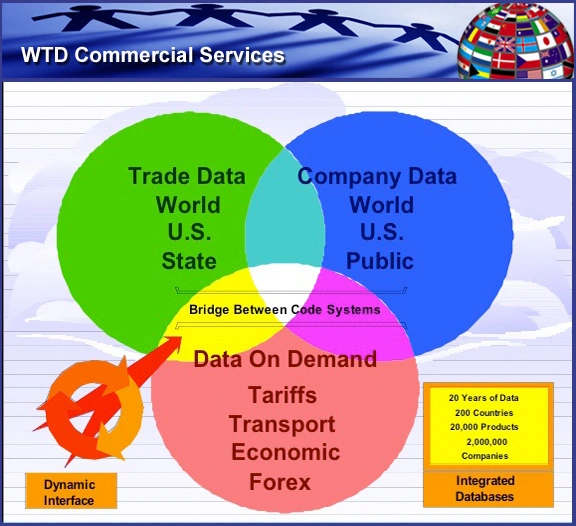Since the advent of the public internet in the 1980s (before the invention of the World Wide Web), international traders have been posting “trade leads,” or messages about their products for sale and products that they need to buy. The earliest such systems were developed independently by the World Trade Centers Association (WTCA) (http://wtca.org) and a service of UNCTAD (United Nations Conference on Trade and Development) http://unctad.org called the World Trade Point Federation. Both the WTCA trade lead system and the Trade Point system no longer exist. But to this day the service they introduced has expanded to thousands of “eMarketplaces” based throughout the world. Among the most famous are Alibaba.com, Global Sources (http://globalsources.com) and TradeKey (http://tradekey.com). The FITA website has an extensive list of these marketplaces athttp://tradeleads.info.
As international trade professionals well understand, successful import/export transactions can only succeed when both parties trust each other. The biggest drawback to electronic marketplaces is the reliability of the offers and demands that are posted on the websites. There are many people who may be posting scams or are not able to fulfill whatever they post. And to this day there are limited ways of performing due diligence by only relying on the eMarketplaces. Some of these websites have set up “Trust” procedures on their website. However even some of those due diligence services proved to be vulnerable to fraud, in some case from within the marketplace companies themselves.
 Still, however, the eMarketplaces are invaluable tools for anybody in the world who wants to see what products are offered from which countries, what price levels are and who manufactures many items. And they can be good venues for finding suppliers and buyers as long as good standards of due diligence are established.
Still, however, the eMarketplaces are invaluable tools for anybody in the world who wants to see what products are offered from which countries, what price levels are and who manufactures many items. And they can be good venues for finding suppliers and buyers as long as good standards of due diligence are established.
With the intent of helping international trade professionals navigate the intricacies of doing honest and effective international trade online, the trade promotion agencies of Canada, Norway and Spain run eMarket Services, http://www.emarketservices.com a website that is a complete resource for using eMarketplaces. Among the free resources on the website are:
- Handbook on E-markets and Online Directories, http://www.emarketservices.com/start/Free-Handbook/index.html which helps you understand the different functionalities of these platforms.
- How to Increase Sales on eMarketplaces, http://www.emarketservices.com/start/Home/Intro/prod/How-to-increase-sales-on-eMarketplaces.html a report that show how to effectively using the eMarketplaces for sales.
- The Directory of Electronic Marketplaces http://www.emarketservices.com/start/eMarket-Directory/index.html.
- The eMarket Checklist, http://www.emarketservices.com/start/Emarket-Checklist/index.html a checklist to find the eMarketplaces that are most suitable for your company.
- A section on “Building Confidence,” http://www.emarketservices.com/start/Knowledge/E-business-Issues/Building-Confidence/index.html which give tips for building trust and protection.
- Many more reports and other resources for using eMarketplaces.
 Another recent type of eMarketplace that is appearing is what we would call a “hybrid.” That is, these marketplaces, although internet-based, still rely on old-fashioned personal relationships as well as social media technologies to ensure that transactions are transparent and honest. One such marketplace is iComtrader http://icomtrader.com/. Built by James Vena, an international trader with 20+ years working for and running successful trading companies, it relies on the personal relationships of the people in a worldwide network of offices. Other new “social media” marketplaces include Globial (http://globial.com) and Tradesparq http://www.tradesparq.com. However at this point neither of these seems to have generated much traffic or interesting content.
Another recent type of eMarketplace that is appearing is what we would call a “hybrid.” That is, these marketplaces, although internet-based, still rely on old-fashioned personal relationships as well as social media technologies to ensure that transactions are transparent and honest. One such marketplace is iComtrader http://icomtrader.com/. Built by James Vena, an international trader with 20+ years working for and running successful trading companies, it relies on the personal relationships of the people in a worldwide network of offices. Other new “social media” marketplaces include Globial (http://globial.com) and Tradesparq http://www.tradesparq.com. However at this point neither of these seems to have generated much traffic or interesting content.
My advice? Be careful and good luck!


 10/03/2012
10/03/2012 
























































































































































































































































































































































No comments yet... Be the first to leave a reply!